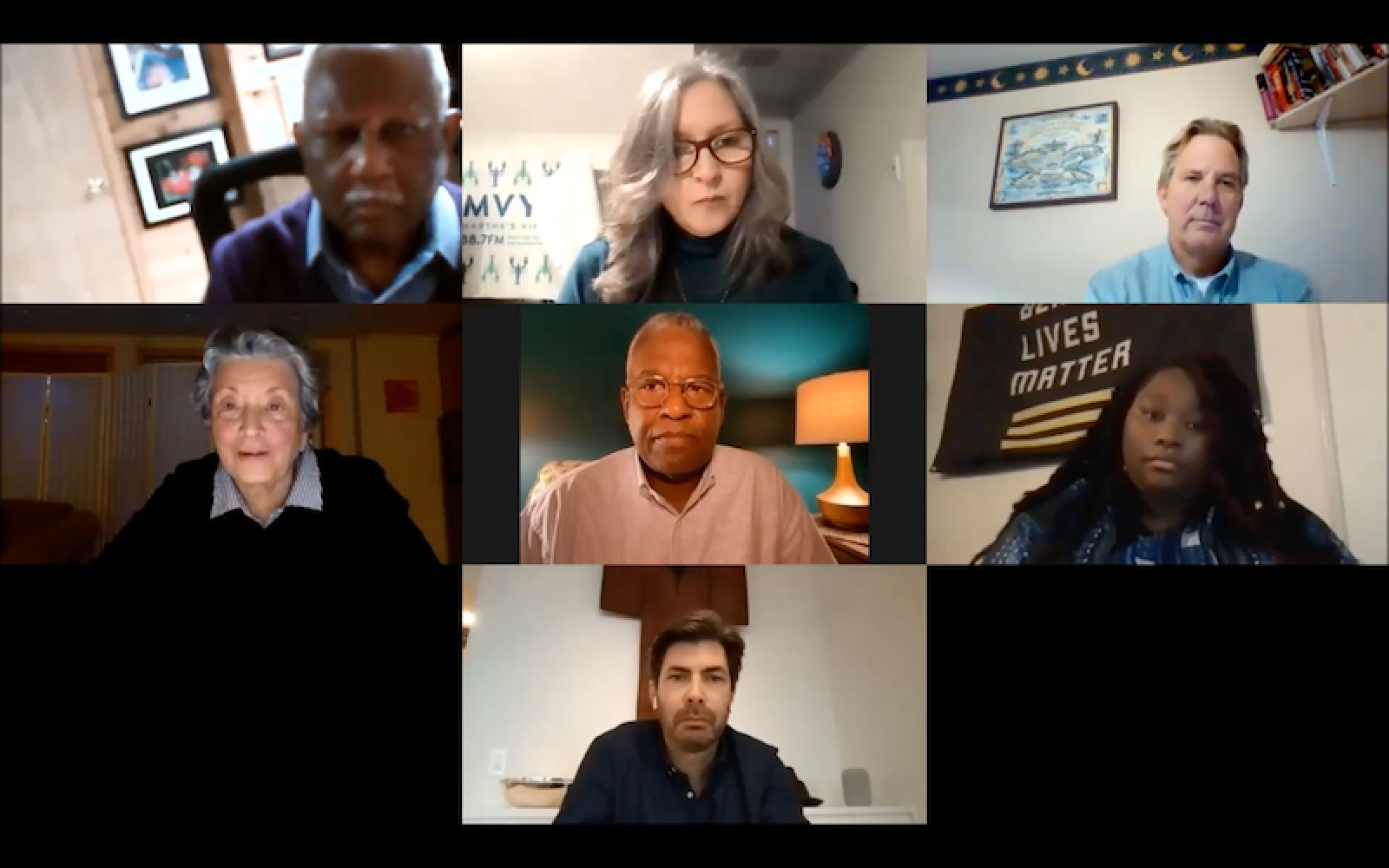During the month of February, MVY Radio is producing a weekly conversation series called Let’s Do Better that focuses on racial equity, identifying racism and the tools necessary to combat it.
The Monday series is hosted by MVY community outreach director Laurel Redington. The first week’s panel discussion focused on recognizing racism; the second event centered on systemic racism.
Joining Ms. Redington to unpack the issue of systemic racism was Dr. Walter Collier, author of Why Racism Persists: An Uncomfortable Truth; Michael McAuliffe, a former federal civil rights prosecutor at the Department of Justice; Sandy Pimentel, a co-founder of the Martha’s Vineyard Diversity Coalition; Clennon L. King, a journalist and documentary filmmaker; Tiffany Adams, an anti-racist training leader for Calling All Crows; and Pete Ambrozaitis, a senior client partner for a management consulting firm that specializes in diversity development strategies.
Ms. Redington said she and Dr. Collier formulated the idea for the series last summer.
“This whole series is here to reorient and reeducate ourselves, reframe our intentions and put them into action,” Ms. Redington said.
Dr. Collier began Monday’s discussion by talking about how systemic racism in America is synonymous with institutional and structural racism.
“You name it and there is some kind of law, legislation or practice that is actively keeping black people from advancing in those particular areas,” Dr. Collier said. “It’s embedded in our society so much that it may be invisible to whites but certainly, its impacts and effects are obvious to the targets of the system.”
Dr. Collier said white privilege was born when plantation owners saw their indentured servants from Europe talking to slaves and feared a bond between the two groups. He said plantation owners would offer incentives to their indentured servants to keep them from commiserating with those who were enslaved.
“The incentive went something like this,” Dr. Collier said. “If you do not aid or help the slaves, we will reward you with some kind of privilege. And hence the incentive has been built in and institutionalized in the system of racism.”
“As long as whites do not stand up against the system, as long as they continue to go about their business not really thinking about their fellow citizens of a darker hue, then the system will continue,” Dr. Collier said.
To push back against systemic racism, Mr. King said education is one of the most important tools available. As an example nearby, he talked about Bristol, R.I., home to the DeWolf family, a large player in the slave trade, along with the wharf in Bristol where enslaved Africans were unloaded.
“I’ll guarantee you that most people don’t even know that this place exists and it’s within earshot of Martha’s Vineyard,” Mr. King said. “So, I encourage people to get out there and understand there are artifacts around slavery that are right here.”
On Monday. Feb. 15 at 5 p.m., the panel will discuss generational perspectives on racism. To register, visit mvyradio.org/diversity .




Comments
Comment policy »